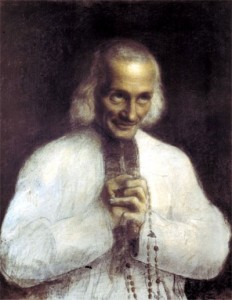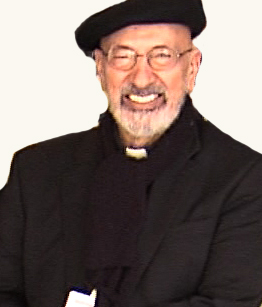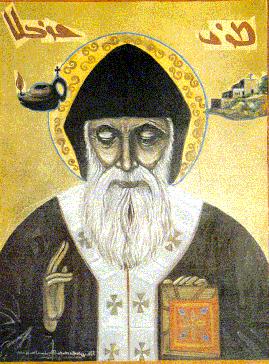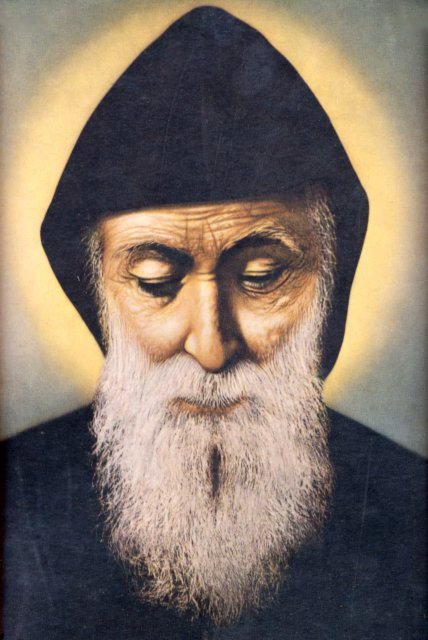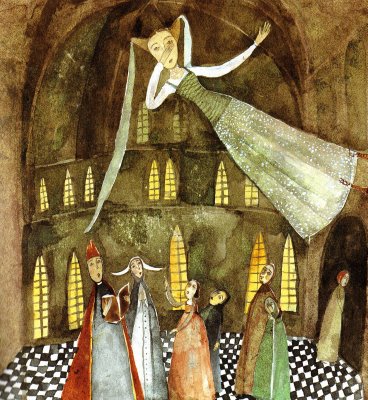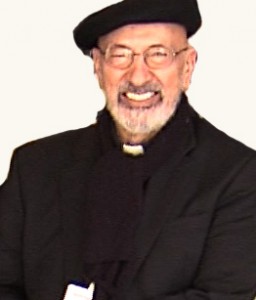Show 42 ” Building a Kingdom of Love” –  The Blinding Danger of Greed
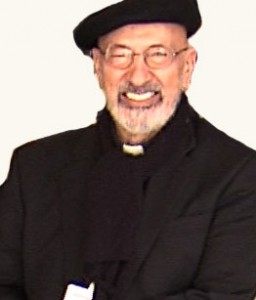
[powerpress]
Msgr. Esseff reflects on the danger of greed:
Gospel            LK 12:13-21
Someone in the crowd said to Jesus,
“Teacher, tell my brother to share the inheritance with me.â€
He replied to him,
“Friend, who appointed me as your judge and arbitrator?â€
Then he said to the crowd,
“Take care to guard against all greed,
for though one may be rich,
one’s life does not consist of possessions.â€Then he told them a parable.
“There was a rich man whose land produced a bountiful harvest.
He asked himself, ‘What shall I do,
for I do not have space to store my harvest?’
And he said, ‘This is what I shall do:
I shall tear down my barns and build larger ones.
There I shall store all my grain and other goods
and I shall say to myself, “Now as for you,
you have so many good things stored up for many years,
rest, eat, drink, be merry!â€â€™
But God said to him,
‘You fool, this night your life will be demanded of you;
and the things you have prepared, to whom will they belong?’
Thus will it be for all who store up treasure for themselves
but are not rich in what matters to God.â€
Msgr. John A. Esseff is a Roman Catholic priest in the Diocese of Scranton. He was ordained on May 30th 1953, by the late Bishop William J. Hafey, D.D. at St. Peter’s Cathedral in Scranton, PA. Msgr. Esseff served a retreat director and confessor to Blessed Mother Teresa.   He continues to offer direction and retreats for the sisters of the missionaries of charity around the world. Msgr. Esseff encountered St.  Padre Pio,  who would become a spiritual father to him. He has lived in areas around the world,  serving  in the Pontifical missions, a Catholic organization established by Bl. Pope John Paul II to bring the Good News to the world especially to the poor. Msgr. Esseff assisted the founders of the Institute for Priestly Formation and continues to serve as a spiritual director for the Institute. He continues to  serve as a retreat leader and director to bishops, priests and sisters and seminarians and other religious leaders around the world. Â
To obtain a copy of Msgr. Esseff’s book byvisiting here
Be sure to visit Msgr. Esseff’s website “Building a Kingdom of  Love”
Tags: blessed mother teresa, Good News, PA, retreat
This entry was posted on Sunday, August 4th, 2013 at 7:04 am
You can follow any responses to this entry through the RSS 2.0 feed.
[powerpress]  St. John Vianney is the subject of the a book by Fr. Frederick L. Miller, a priest of the Archdiocese of Newark, NJ, is 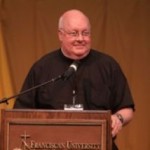 the Chairman of the Department of Systematic Theology at Mount St. Mary’s Seminary in Emmitsburg, Maryland.  We had a chance to speak to him about the life and times and this holy priest.
the Chairman of the Department of Systematic Theology at Mount St. Mary’s Seminary in Emmitsburg, Maryland.  We had a chance to speak to him about the life and times and this holy priest.
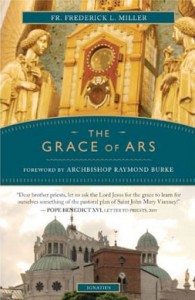 You can find the book here
You can find the book here
Tags: france, John Vianney, NJ, priesthood
This entry was posted on Sunday, August 4th, 2013 at 12:06 am
You can follow any responses to this entry through the RSS 2.0 feed.
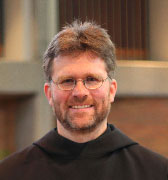 Episode 1 – The Holy Rule of St. Benedict: A Spiritual Path for Today’s World with Fr. Mauritius Wilde O.S.B., PhD. Â Materialism vs Gratitude is the subject addressed in our first episode. Â How to deal with things. “Do you really need it?” This is the question we are called to ask ourselves.
Episode 1 – The Holy Rule of St. Benedict: A Spiritual Path for Today’s World with Fr. Mauritius Wilde O.S.B., PhD. Â Materialism vs Gratitude is the subject addressed in our first episode. Â How to deal with things. “Do you really need it?” This is the question we are called to ask ourselves.
[powerpress]
 From the Holy Rule of St. Benedict:
From the Holy Rule of St. Benedict:
CHAPTER XXXIV.
Whether all ought equally to receive what is needful.
As it is written: “Distribution was made to every one, according as he had need.â€177 By this, we do not say that there should be accepting of persons, which God forbid, but that due consideration should be shown to each one’s infirmities. Therefore, let him who needeth less, give God thanks, and be not grieved; and let him who needeth more, be humbled for his infirmity, and not lifted up for the mercy that is shown him; and thus all the members shall be in peace. Above all things, take heed there be no murmuring, by word or sign, upon any occasion whatsoever, If any one shall be found faulty in this respect, let him be subjected to most severe discipline.
Father Mauritius Wilde, OSB, Ph.D., did his philosophical, theological and doctoral studies in Europe. He is the author of several books and directs retreats regularly. He serves as Prior of our monastery in Schuyler.
 For more information about the ministry of the the Missionary Benedictines of Christ the King Priory in Schuyler, Nebraska visit here:
For more information about the ministry of the the Missionary Benedictines of Christ the King Priory in Schuyler, Nebraska visit here:
Tags: Gratitude, Holy Rule of St. Benedict, Mauritius
This entry was posted on Friday, August 2nd, 2013 at 6:03 pm
You can follow any responses to this entry through the RSS 2.0 feed.
Episode 8 – Great Works in Western Literature with Joseph Pearce – Jane Austen
Jane Austen is arguably the finest female novelist who ever lived and Pride and Prejudice is arguably the finest, and is certainly the most popular, of her novels. An undoubted classic of world literature, its profound Christian morality is all too often missed or willfully overlooked by today’s (post)modern critics.
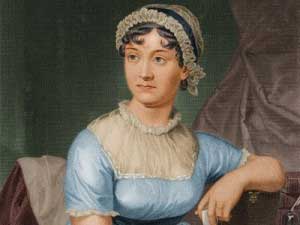 In all things, Jane Austen was a woman of faith. Perhaps nowhere is this more apparent than in Mansfield Park, her most neglected, abused, and misunderstood novel. Like Austen’s other novels, it can be fully appreciated only when illuminated by the virtuous life and Christian beliefs of the author herself.
In all things, Jane Austen was a woman of faith. Perhaps nowhere is this more apparent than in Mansfield Park, her most neglected, abused, and misunderstood novel. Like Austen’s other novels, it can be fully appreciated only when illuminated by the virtuous life and Christian beliefs of the author herself.
Jane Austen saw the follies and foibles of human nature, and the frictions and fidelities of family life, with an incisive eye that penetrates to the very heart of the human condition.
[powerpress]
Based on the Ignatius Critical Edition, this series examines, from the Judeo-Christian perspective, the life, the times, and influence of authors of great works in literature .
Joseph Pearce is currently the Writer-in-Residence and Visiting Fellow at Thomas More College of Liberal Arts in Merrimack, New Hampshire. He is also Visiting Scholar at Mount Royal Academy in Sunapee, New Hampshire. He is also Visiting Scholar at Mount Royal Academy in Sunapee, New Hampshire. He is  co-editor of the Saint Austin Review (or StAR), an international review of Christian culture, literature, and ideas published in England (Family Publications) and the United States (Sapientia Press). He is also the author of many books, including literary biographies of Solzhenitsyn, J. R. R. Tolkien, C. S. Lewis, G. K. Chesterton, and Oscar Wilde.
To learn more about the authors and titles available in the Ignatius Critical Editions
Tags: ave maria university, family life, heart, ignatius critical editions, ignatius press, jane austen, jane austin, joseph pearce, literary biographies, literature, mansfield park, pride and prejudice, sapientia press
This entry was posted on Friday, August 2nd, 2013 at 11:55 am
You can follow any responses to this entry through the RSS 2.0 feed.
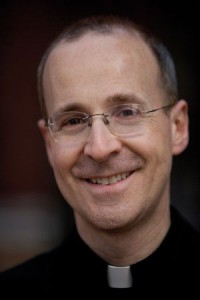 Here is a special interview we had with Fr. James Martin, SJ discussing St. Ignatius of Loyola
Here is a special interview we had with Fr. James Martin, SJ discussing St. Ignatius of Loyola
[powerpress]
ADDRESS OF HIS HOLINESS BENEDICT XVI
TO THE FATHERS AND BROTHERS OF THE SOCIETY OF JESUS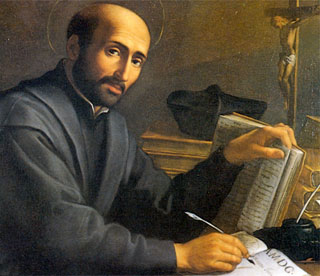
Vatican Basilica
Saturday, 22 April 2006 Â from vatican.va
Dear Fathers and Brothers of the Society of Jesus,
I meet you with great joy in this historical Basilica of St Peter’s after the Holy Mass celebrated for you by Cardinal Angelo Sodano, my Secretary of State, on the occasion of combined jubilees of the Ignatian Family. I address my cordial greeting to you all.
I greet in the first place the Superior General, Fr Peter-Hans Kolvenbach, and thank him for his courteous words expressing your common sentiments to me. I greet the Cardinals with the Bishops and priests and all those who have desired to participate in this event.
Together with the Fathers and Brothers, I also greet the friends of the Society of Jesus present here, and among them, the
many men and women religious, members of the Communities of Christian Life and of the Apostolate of Prayer, the students and alumnae with their families from Rome, from Italy and from Stonyhurst in England, the teachers and students of the academic institutions and the many collaborators.
Your visit today gives me the opportunity to thank the Lord with you for having granted your Society the gift of men of extraordinary holiness and exceptional apostolic zeal, such as St Ignatius of Loyola, St Francis Xavier and Bl. Peter Faber. For you they are the Fathers and Founders: it is therefore appropriate that in this centenary year you commemorate them with gratitude and look to them as enlightened and reliable guides on your spiritual journey and in your apostolic activities.
St Ignatius of Loyola was first and foremost a man of God who in his life put God, his greatest glory and his greatest service, first. He was a profoundly prayerful man for whom the daily celebration of the Eucharist was the heart and crowning point of his day.
Thus, he left his followers a precious spiritual legacy that must not be lost or forgotten. Precisely because he was a man of God, St Ignatius was a faithful servant of the Church, in which he saw and venerated the Bride of the Lord and the Mother of Christians. And the special vow of obedience to the Pope, which he himself describes as “our first and principal foundation” (MI, Series III, I., p. 162), was born from his desire to serve the Church in the most beneficial way possible. (more…)
Tags: american magazine, celebration, fr. james martin, heart, James Martin, st. ignatius, st. ignatius of loyola
This entry was posted on Wednesday, July 31st, 2013 at 1:45 am
You can follow any responses to this entry through the RSS 2.0 feed.
Episode 2 -Listening For Truth– The virtues:  Fortitude, Obedience, and so much more.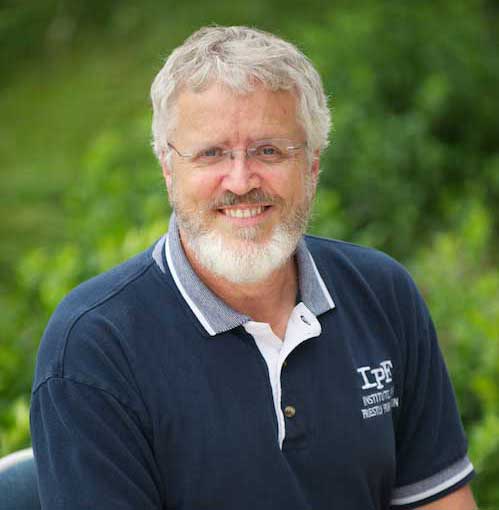
[powerpress]
Deacon James Keating, PhD, the director of Theological Formation for the Institute for Priestly Formation, located at Creighton University, in Omaha, is making available to â€Discerning Hearts†and all who listen, his series of programs entitled “Listening For Truthâ€.
 Listening for Truth leads men and women in a search for a fuller experience of God that begins in prayer, grows in the rediscovery of our spiritual being, and grounds itself in the truth of Jesus Christ. A presentation of the Christian life as an engagement of the whole person — body, mind, and soul — in the challenge of daily living.
Listening for Truth leads men and women in a search for a fuller experience of God that begins in prayer, grows in the rediscovery of our spiritual being, and grounds itself in the truth of Jesus Christ. A presentation of the Christian life as an engagement of the whole person — body, mind, and soul — in the challenge of daily living.
For more information on the “Institute of Priestly Formation†and for other material available by Deacon Keating, just click here
Don’t forget to pickup a copy of “Communion with Christ†, it is one of the best audio sets on prayer…ever!
Check out Deacon Keating’s “Discerning Heart†page
Tags: creighton university, Deacon James Keating, Deacon Keating, prayer
This entry was posted on Monday, July 29th, 2013 at 5:55 pm
You can follow any responses to this entry through the RSS 2.0 feed.
Praying to Saints
[powerpress]
On this faith check let’s answer the question, “why pray to a saint when you can pray straight to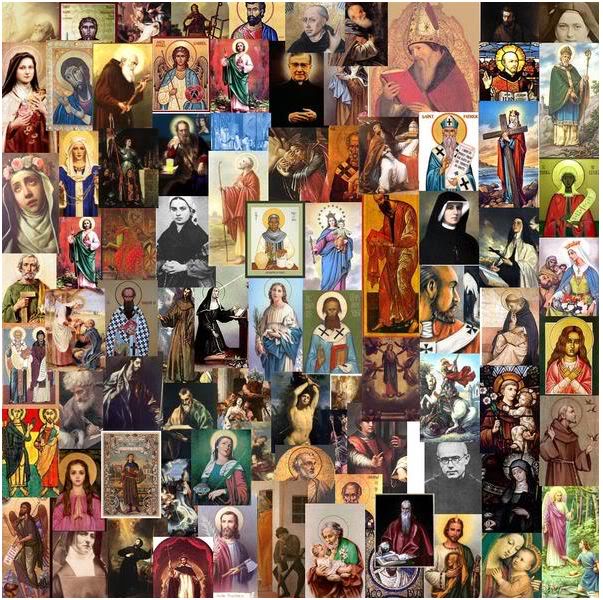 God?â€
God?â€
Of course, Catholics can and do pray straight to God. But we also pray to saints, not to worship them, but simply to ask for their prayers on our behalf, just like we ask our friends on earth to pray for us.
In the communion of saints we are spiritually connected to believers in the here and now and in the hereafter. For instance, Hebrews tells us we are surrounded by a “great cloud of witnesses,â€1 who are aware of what’s going on here. We read in Revelation that the prayers of the elders and saints in heaven are ascending before the throne of God.2
The prayers of the saints are powerful because they have been perfected in God’s grace and as St. James says, “the fervent prayer of the righteous has great power.â€3
Early Christian writings demonstrate that this practice was not a later corruption, but goes back to the very first centuries of Christianity. So let us join with Christians of all ages in saying “all you holy men and women, pray for us!â€
1 -Â 12:1
2 -Â 5:8; 8:3; etc.
3 -Â 5:16
Tags: cloud of witnesses, communion of saints, faith, prayers, prayers of the saints, praying to saints, saints, women
This entry was posted on Monday, July 29th, 2013 at 12:09 am
You can follow any responses to this entry through the RSS 2.0 feed.
Dr. Matthew Bunson joins us to discuss the recent encyclical issued by Pope Francis, “Lumen Fidei” 
[powerpress]
ENCYCLICAL LETTER
LUMEN FIDEI
OF THE SUPREME PONTIFF
FRANCIS
TO THE BISHOPS PRIESTS AND DEACONS
CONSECRATED PERSONS
AND THE LAY FAITHFUL
ON FAITH1. The light of Faith: this is how the Church’s tradition speaks of the great gift brought by Jesus. In John’s Gospel, Christ says of himself: “I have come as light into the world, that whoever believes in me may not remain in darkness” (Jn 12:46). Saint Paul uses the same image: “God who said ‘Let light shine out of darkness,’ has shone in our hearts” (2 Cor 4:6). The pagan world, which hungered for light, had seen the growth of the cult of the sun god, Sol Invictus, invoked each day at sunrise. Yet though the sun was born anew each morning, it was clearly incapable of casting its light on all of human existence. The sun does not illumine all reality; its rays cannot penetrate to the shadow of death, the place where men’s eyes are closed to its light. “No one — Saint Justin Martyr writes — has ever been ready to die for his faith in the sun”.[1] Conscious of the immense horizon which their faith opened before them, Christians invoked Jesus as the true sun “whose rays bestow life”.[2] To Martha, weeping for the death of her brother Lazarus, Jesus said: “Did I not tell you that if you believed, you would see the glory of God?” (Jn 11:40). Those who believe, see; they see with a light that illumines their entire journey, for it comes from the risen Christ, the morning star which never sets.
Tags: death, FRANCIS, Jesus, matthew bunson
This entry was posted on Monday, July 29th, 2013 at 12:08 am
You can follow any responses to this entry through the RSS 2.0 feed.
 Episode 14 – Herman Melville  and “Moby Dick”  on Great Works in Western Literature with Joseph PearceÂ
Episode 14 – Herman Melville  and “Moby Dick”  on Great Works in Western Literature with Joseph PearceÂ
[powerpress]
A sea adventure, a study of evil, and a cast of fascinating characters, including the 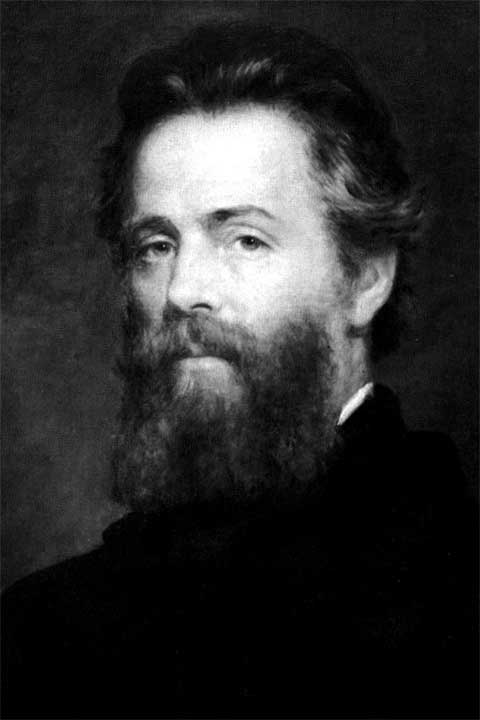 crazed captain who is obsessed with hunting down the whale that maimed him — Moby-Dick is all of this and more.
crazed captain who is obsessed with hunting down the whale that maimed him — Moby-Dick is all of this and more.
Based on the author’s experiences as a sailor, Herman Melville’s probing look into the human heart has been read and analyzed from every angle, including the most absurd. The tragic tale is looked at afresh in this Ignatius Critical Edition, which examines the background and other writings of the author and provides his essay on a work by his literary friend Nathaniel Hawthorne.
Based on the Ignatius Critical Edition, this series examines, from the Judeo-Christian perspective, the life,the times, and influence of authors of great works in literature .
Joseph Pearce  is currently the Writer-in-Residence and Visiting Fellow at Thomas More College of Liberal Arts in Merrimack, New Hampshire. He is also Visiting Scholar at Mount Royal Academy in Sunapee, New Hampshire. He is also Visiting Scholar at Mount Royal Academy in Sunapee, New Hampshire. , as well as co-editor of the Saint Austin Review (or StAR), an international review of Christian culture, literature, and ideas published in England (Family Publications) and the United States (Sapientia Press). He is also the author of many books, including literary biographies of Solzhenitsyn, J. R. R. Tolkien, C. S. Lewis, G. K. Chesterton, and Oscar Wilde.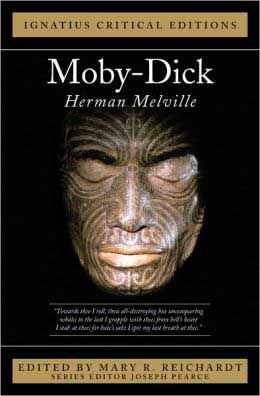
To learn more about the authors and titles available in the Ignatius Critical Editions
Tags: evil, heart, Ignatius Critical Edition, joseph pearce, nathaniel hawthorne, work
This entry was posted on Wednesday, July 24th, 2013 at 11:47 am
You can follow any responses to this entry through the RSS 2.0 feed.
Msgr. Esseff shares stories of his time in Lebanon and his experience surrounding the great St. Charbel Makhlouf. Â He also reflects on today’s reading and the importance of depending on God.
Reading 1 EX 16:1-5, 9-15
The children of Israel set out from Elim,
and came into the desert of Sin,
which is between Elim and Sinai,
on the fifteenth day of the second month
after their departure from the land of Egypt.
Here in the desert the whole assembly of the children of Israel
grumbled against Moses and Aaron.
The children of Israel said to them,
“Would that we had died at the LORD’s hand in the land of Egypt,
as we sat by our fleshpots and ate our fill of bread!
But you had to lead us into this desert
to make the whole community die of famine!â€
Then the LORD said to Moses,
“I will now rain down bread from heaven for you.
Each day the people are to go out and gather their daily portion;
thus will I test them,
to see whether they follow my instructions or not.
On the sixth day, however, when they prepare what they bring in,
let it be twice as much as they gather on the other days.â€
Then Moses said to Aaron, “Tell the whole congregation
of the children of Israel:
Present yourselves before the LORD,
for he has heard your grumbling.â€
When Aaron announced this to the whole assembly of the children of Israel,
they turned toward the desert, and lo,
the glory of the LORD appeared in the cloud!
The LORD spoke to Moses and said,
“I have heard the grumbling of the children of Israel.
Tell them: In the evening twilight you shall eat flesh,
and in the morning you shall have your fill of bread,
so that you may know that I, the LORD, am your God.â€
In the evening quail came up and covered the camp.
In the morning a dew lay all about the camp,
and when the dew evaporated, there on the surface of the desert
were fine flakes like hoarfrost on the ground.
On seeing it, the children of Israel asked one another, “What is this?â€
for they did not know what it was.
But Moses told them,
“This is the bread which the LORD has given you to eat.â€
Tags: Charbel Makhlouf, children, Israel, John Esseff
This entry was posted on Wednesday, July 24th, 2013 at 9:05 am
You can follow any responses to this entry through the RSS 2.0 feed.
The Chaplet of St. Charbel – for text click here
[powerpress]
Countless…countless…miracles are attributed to this rmarkable saint of the Middle East…St. Charbel. I didn’t know of him until a wonderful member of the Fransican Friars of the Renewal, Br. Martin Ervin introduced us to this extraordinary man.
“In the 19th century Father Charbel Makhlouf-along with a few other saintly men-had tried to live again the austere life of the desert fathers of the early church. He belonged to the Christian body known as Maronites, a group which traces its name back to Saint Maro, a friend of Saint John Chrysostom. This group of Christians, most of whom still live in Lebanon, have been united to the Western Church since the 12th century, thus bringing into Western Christendom traditions of great value that might readily have been forgotten. These traditions are ones of enormous self- discipline, and few have exemplified them better than Charbel Makhlouf.
After 23 years of this ascetic life, Charbel had a paralyzing stroke just before the consecration while celebrating the Eucharist in his chapel, and died eight days later on Christmas Eve. After his death many favors and miracles were claimed through his intercession in heaven. Today his tomb is visited by large numbers of people, not only Lebanese Maronites and not only Christians” – Mansour Mouasher
In 1950, Father George Webby, a Maronite priest from Scranton, visited Lebanon, took a photo of monks outside the wall of the 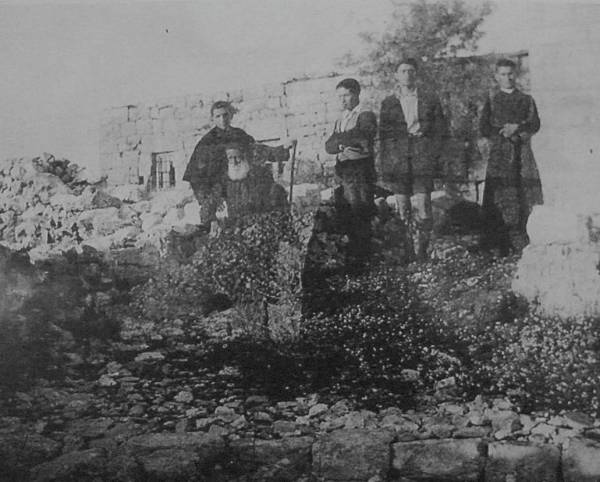 monastery in which St. Charbel had lived and upon development of the picture saw that St. Charbel miraculously appeared with the monks, according to information provided by St. Anthony’s Church.
monastery in which St. Charbel had lived and upon development of the picture saw that St. Charbel miraculously appeared with the monks, according to information provided by St. Anthony’s Church.
Art work for holy pictures of this saint is now taken from this photo. Can you see him? (Hint: smack dab in the middle) click on the picture and then zoom in….
St. Charbel is listed among The Incorruptibles, saints whose bodies were found intact years after burial. His body kept pouring oil and blood until the year before his canonization in 1977.
Here is a neat video entitled “The Saint Charble Song” …it’s special…
Tags: catholic, catholic podcast, catholic prayer, cathollc spirituality, Charbel Makhlouf, desert fathers, intercession, Lebanon, maronites, miracles, miraculous healings, Saint Maro, St. Charbel, st. sharbel
This entry was posted on Wednesday, July 24th, 2013 at 4:19 am
You can follow any responses to this entry through the RSS 2.0 feed.
A Prayer to St. Christina
[powerpress]
Today is the feast day of St. Christina the Astonishing. Why is she astonishing…well, if everyone thought you were dead and during the course of your funeral you shot up and proceeded to levitate to the rafters of the church, they’d probably call you astonishing too. Now I’ve been known to fly into a panic and fly into a rage, and I even fly to Costco for a good deal…but fly in church? Nope, not me. But all things are possible, with God. This is just one of the stories I read about her a long time ago in an old version of Bulter’s Lives of the Saints.  What else do we know:
After her death experience, she related that she had witnessed heaven, hell, and purgatory. It is written that she said “As soon as my soul was separated from my body it was received by angels who conducted it to a very gloomy place, entirely filled with souls” where the torments there that they endured “appeared so excessive” that it was “impossible to give an idea of their rigor.”
She continued,”I saw among them many of my acquaintances” and touched deeply by their sad condition asked if this was Hell, but was told that it was Purgatory. Her angel guides brought her to Hell where again she recognized those she had formerly known. Next she was transported to Heaven, “even to the Throne of Divine Majesty” where she was “regarded with a favorable eye” and she experienced extreme joy and these words were spoken to her, ” Assuredly, My dear daughter, you will one day be with Me. Now, however, I allow you to choose, either to remain with Me henceforth from this time, or to return again to earth to accomplish a mission of charity and suffering. In order to deliver from the flames of Purgatory those souls which have inspired you with so much compassion, you shall suffer for them upon earth: you shall endure great torments, without however dying from their effects. And not only will you relieve the departed, but the example which you will give to the living, and your continual suffering, will lead sinners to be converted and to expiate their crimes. After having ended this new life, you shall return here laden with merits.”
Christina, at hearing this and “seeing the great advantages for souls” without hesitation she agreed to return to life and arose that same moment. She told those around her that for the sole purpose of relief of the departed and conversion of sinners did she return and that none should be astonished at the penances that she would practice, nor the life that she would lead hence forth, she is quoted as saying, “It will be so extraordinary that nothing like it has ever been seen.” Making penances for the souls of Purgatory and Hell would henceforth become a major theme in her life.
As chronicled by her contemporaries, she threw herself into burning furnaces and there suffered great tortures for extended time uttering frightful cries, yet coming forth with no sign of burning upon her. In winter she would plunge into the frozen Meuse River for hours and days and weeks at a time all the while praying to God and imploring His Mercy. She allowed herself to be carried by the currents down river to the mill where the wheel “whirled her round in a manner frightful to behold” yet she had no dislocations or broken bones. She was chased by dogs that bit and tore her flesh. She ran from them into thickets of thorns, and though covered in blood she would return with no wound or scar.
Christina died in 1224 of natural causes, aged 74. – Wikipedia
After reading this, maybe you might want to, at least, pray with St. Christina the Astonishing, for the Poor Souls in Puragatory…click on this link to join in
Tags: angels, conversion, death experience, feast day, hell and purgatory, His Mercy, Meuse River, mission, saints, suffering, women of the middle ages
This entry was posted on Wednesday, July 24th, 2013 at 12:02 am
You can follow any responses to this entry through the RSS 2.0 feed.
Here is part 2 of our discussion:
With a pastor’s heart and eagle-eye accuracy, the gifted Al Kresta addresses “Dangers to the Faith: Recognizing Catholicism’s 21st Century 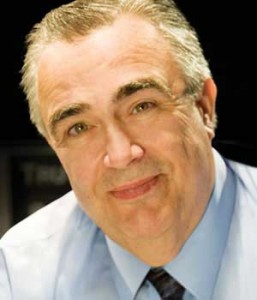 Opponents” in his newest book published by Our Sunday Visitor.    The secular world has presented many twisted versions of the “Truth” over the years: from New Age thought to Isalm, Scientism to Consumerism, Oprah and Shirley to Bart Erhman and Carl Sagan. Al Kresta challenges the “opponents” of faith with Christ-like love and wisdom. In the process, he teaches us all how to evangelize as a true disciple of Christ. A must have work for all those who may have a seeking heart and a desire to grow in their faith and to share it with family, friends and all they may encounter. One of the best books offered in this Year of Faith….a modern classic that should be in every Catholic home!
Opponents” in his newest book published by Our Sunday Visitor.    The secular world has presented many twisted versions of the “Truth” over the years: from New Age thought to Isalm, Scientism to Consumerism, Oprah and Shirley to Bart Erhman and Carl Sagan. Al Kresta challenges the “opponents” of faith with Christ-like love and wisdom. In the process, he teaches us all how to evangelize as a true disciple of Christ. A must have work for all those who may have a seeking heart and a desire to grow in their faith and to share it with family, friends and all they may encounter. One of the best books offered in this Year of Faith….a modern classic that should be in every Catholic home!
Here is part 2 of our discussion:
[powerpress]
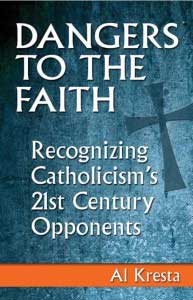 You can find the book here
You can find the book here
Be sure to listen to “Kresta in the Afternoon” on the Ave Maria Radio Network
From the description:
Dangers to the Faith: Recognizing Catholicism’s 21st Century Opponents is the perfect springboard for discussing the new world in which the Catholic Church exists today. Learn how to better carry out the missionary mandate of the Church. The question isn’t whether you will be a witness to Christ, but whether you will be a faithful witness.
Tags: al kresta, Bart Erhman, Carl Sagan.� Al Kresta
This entry was posted on Tuesday, July 23rd, 2013 at 8:44 am
You can follow any responses to this entry through the RSS 2.0 feed.
Episode 1 -Listening For Truth– Introduction. Making moral judgments. What are the boundaries? Giving God time to reach us. Knowing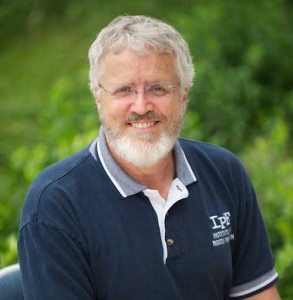 how we are being guided properly.
how we are being guided properly.
[powerpress]
Deacon James Keating, PhD, the director of Theological Formation for the Institute for Priestly Formation, located at Creighton University, in Omaha, is making available to â€Discerning Hearts†and all who listen, his series of programs entitled “Listening For Truthâ€.
 Listening for Truth leads men and women in a search for a fuller experience of God that begins in prayer, grows in the rediscovery of our spiritual being, and grounds itself in the truth of Jesus Christ. A presentation of the Christian life as an engagement of the whole person — body, mind, and soul — in the challenge of daily living.
Listening for Truth leads men and women in a search for a fuller experience of God that begins in prayer, grows in the rediscovery of our spiritual being, and grounds itself in the truth of Jesus Christ. A presentation of the Christian life as an engagement of the whole person — body, mind, and soul — in the challenge of daily living.
For more information on the “Institute of Priestly Formation†and for other material available by Deacon Keating, just click here
Don’t forget to pickup a copy of “Communion with Christ†, it is one of the best audio sets on prayer…ever!
Check out Deacon Keating’s “Discerning Heart†page
Tags: creighton university, Deacon James Keating, Giving God, prayer
This entry was posted on Monday, July 22nd, 2013 at 10:43 am
You can follow any responses to this entry through the RSS 2.0 feed.
[powerpress]
Msgr. Esseff reflects on the need to be aware of Christ’s “presence”.
GospelLK 10:38-42
where a woman whose name was Martha welcomed him.
She had a sister named Mary
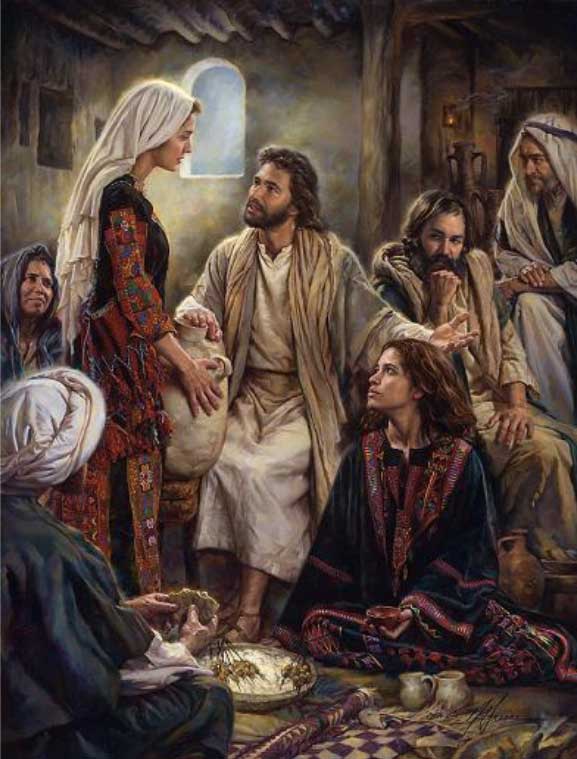 who sat beside the Lord at his feet listening to him speak.
who sat beside the Lord at his feet listening to him speak.Martha, burdened with much serving, came to him and said,
“Lord, do you not care
that my sister has left me by myself to do the serving?
Tell her to help me.â€
The Lord said to her in reply,
“Martha, Martha, you are anxious and worried about many things.
There is need of only one thing.
Mary has chosen the better part
and it will not be taken from her.â€
Msgr. John A. Esseff is a Roman Catholic priest in the Diocese of Scranton. He was ordained on May 30th 1953, by the late Bishop William J. Hafey, D.D. at St. Peter’s Cathedral in Scranton, PA. Msgr. Esseff served a retreat director and confessor to Blessed Mother Teresa.   He continues to offer direction and retreats for the sisters of the missionaries of charity around the world. Msgr. Esseff encountered St.  Padre Pio,  who would become a spiritual father to him. He has lived in areas around the world,  serving  in the Pontifical missions, a Catholic organization established by Bl. Pope John Paul II to bring the Good News to the world especially to the poor. Msgr. Esseff assisted the founders of the Institute for Priestly Formation and continues to serve as a spiritual director for the Institute. He continues to  serve as a retreat leader and director to bishops, priests and sisters and seminarians and other religious leaders around the world.  Â
To obtain a copy of Msgr. Esseff’s book by visiting here
Be sure to visit Msgr. Esseff’s website “Building a Kingdom of  Love”
Tags: Good News, John Esseff, retreat, Roman Catholic
This entry was posted on Sunday, July 21st, 2013 at 6:50 pm
You can follow any responses to this entry through the RSS 2.0 feed.


